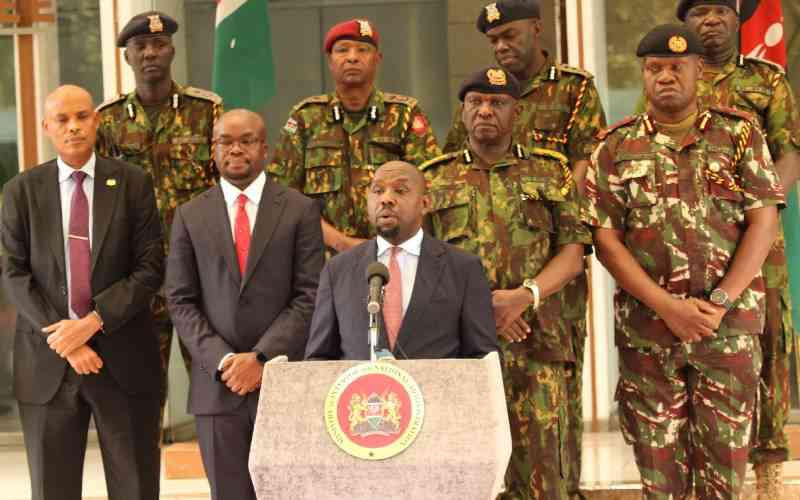NHTSA's five-star assessment program needs an overhaul, automakers and vehicle safety groups tell Congress
The National Highway Traffic Safety Administration (NHTSA)’s New Car Assessment Program (NCAP) has fallen behind other countries, multiple organizations focused on vehicle safety told Congress during a committee hearing Thursday.
“NHTSA isn’t rating new safety technologies fast enough or often enough to help consumers make informed purchasing decisions,” said John Bozzella, Alliance for Automotive Innovation (Auto Innovators) president and CEO, during the “Looking Under the Hood: The State of NHTSA and Motor Vehicle Safety” hearing held by the House Committee on Energy and Commerce.
Bozzella said NCAP needs to be modernized to promote innovation, encourage constant safety improvements, and empower consumers with clear information about vehicle safety.
“NHTSA should rethink NCAP, take oversight of the program out of rulemaking, and look at how similar programs are working better around the world,” Bozzella said.
David Harkey, Insurance Institute for Highway Safety (IIHS) president, also told the committee that IIHS agrees there has been a lack of guidance from NHTSA to consumers as automakers introduce more automation in vehicles with new safety concerns.
He said NCAP is an assessment program that produces five-star safety ratings, which are an important source of information for consumers shopping for the safest vehicles.
However, IIHS has needed to fill in as NHTSA fails to keep the rating up-to-date with modernization. This includes IIHS developing a partial automation safeguard rating to help ensure drivers stay engaged while using the systems.
Catherine Chase, Advocates for Highway and Auto Safety president, echoed concerns about NCAP being outdated.
“This actually is a place where the United States has fallen behind other countries, which is very shameful because we, the United States, started this program,” Chase said. “It has devolved over the years, and it now really has become like a participation award. We’ve fallen subject to ‘Starflation,’ where everyone gets five stars. It’s like Oprah, ‘You get five stars, you get five stars.’”
Chase said one of the largest parts of a family’s budget is spent on a vehicle, and they want a safe car.
“They know that five stars means something and in the absence of NCAP stepping up, I have to say the the Insurance Institute of Highway Safety has done an exceptional job in terms of rating and crash testing vehicle so that consumers can be informed but this should be the role of our government and of the agency that is NHTSA,” Chase said.
Debbie Dingell (D-Michigan) asked why today’s crash test dummies still don’t reflect the real-world risk women face in car crashes.
“While bipartisan legislation has been introduced to require NHTSA to adopt the modern female test dummy, experts argue that NHTSA already has the authority to act, but they’re not,” Dingell said.
Bozzella said every driver and every passenger is entitled to the same safety.
“We absolutely have to have a regulatory system and a product development system and a research and development system that recognizes and respects that,” Bozzella said. “What we’re doing already as an industry is we continue to advance crashworthiness and we continue to advance airbag technologies and seat belt and restraint technologies.”
He said this includes work being done on advanced dummies.
“But today NHTSA does not test its current female dummies in every driver position that it tests its male dummies,” Bozzella said. “That’s why we wrote a letter this week to the NHTSA asking that question. I think it is very important that in their rule test, in their Federal Motor Vehicle Safety Standards (FMVSS), and in their NCAP testing that they do so.”
In a written statement, Bozzella recommended NCAP reform that includes establishing a dedicated NCAP office within NHTSA that is led by a new associate administrator focused exclusively on the program’s administration and improvement.
He also recommended that NHTSA create a federal advisory committee to provide expert input, technology assessment, and strategic guidance on future NCAP updates.
Bozella also recommended the development of a 10-year NCAP roadmap. He said it should collaborate with the advisory committee and a newly formed nonprofit entity to identify and evaluate emergency technologies worthy of inclusion.
Manufacturers should also be able to self-report with an appropriate audit authority retained by NHTSA, he said. This would help streamline the ratings process, reduce delays, and improve efficiency. Testing done by NHTSA and contractors must be finalized and published quickly to maximize effectiveness for consumers, he said.
Lastly, Auto Innovators recommends that NHTSA expand consumer education initiatives to ensure NCAP ratings are understandable, accessible, and influential, driving market demand for the safest and most innovative vehicles.
“These recommendations are not new; many of them were outlined before in public submissions,” Bozzella said. “But what’s needed now is action. A reinvigorated NCAP should not merely serve as a compliance mechanism. It should be a cornerstone of America’s safety and innovation leadership — a transparent, collaborative tool that encourages continuous improvement and reflects the shared goals of industry and government.”
IMAGE
Catherine Chase, Advocates for Highway and Auto Safety president, testifies before Congress on June 26, 2025. /Screenshot
Share This:








:max_bytes(150000):strip_icc()/SPXChart-240255c98b594f5c8b2c30a841873310.gif)


